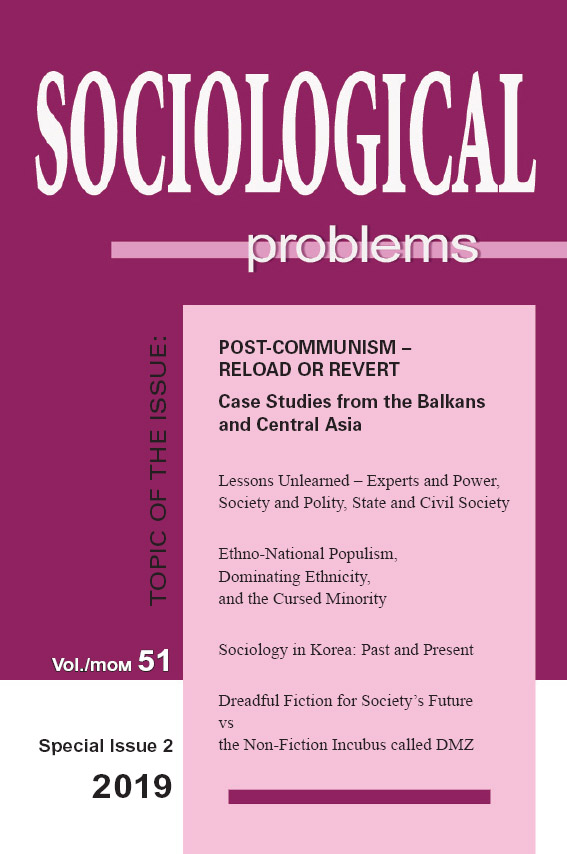Roma, Crime and Politics in Contemporary Bulgaria
Roma, Crime and Politics in Contemporary Bulgaria
Author(s): Petar G. CholakovSubject(s): Politics / Political Sciences, Social Sciences, Sociology, Inter-Ethnic Relations, Ethnic Minorities Studies
Published by: Институт по философия и социология при БАН
Keywords: ethnicity and crime; ethnic conflicts in contemporary Bulgaria; integration of Roma; political parties and ethnic conflicts; ethnic entrepreneurs
Summary/Abstract: This paper tackles the issue of “Roma crimes” in Bulgaria and, specifically, how these are used by the ethnic entrepreneurs. First, I examine trends and outline important problems related to the collection of data on these crimes. There is a lack of consensus among the experts in the field as to whether the data are reliable and credible enough to allow studying this phenomenon, particularly in a comparative perspective, and especially in the new millennium. There are significant negative stereotypes among the Bulgarians towards the Roma. Although the latter make up a small percentage of the population, they are the main recipients of social benefits, while their contribution to the state budget is negligible. In the second part of the paper, I explore several case studies. These demonstrate how and why the public’s attention is focused on the criminal activities of Roma. This study also sheds light on how political parties and politicians are involved in the matter. Regardless of whether Roma “criminality” is diminishing or not, the protests that followed the events in Katunitsa in 2011 revealed that Bulgarian society is becoming less and less willing to put up with this ethnic minority’s brushes with the law. In my view, the problem is not that the populist radical right-wing parties promote a zero tolerance policy toward criminals, but that these political formations are prepared to use the stain of “illegal activities” and place it as a stigma on the ethnic group as a whole. The dire conditions in the ghettoes create time bombs. In order not only to dismantle these “explosives” but to entirely prevent their (further) appearance, the Bulgarian government must urgently improve its integration strategies, policies, and measures.
Journal: Социологически проблеми
- Issue Year: 51/2019
- Issue No: Special 2
- Page Range: 312-328
- Page Count: 16
- Language: English
- Content File-PDF

